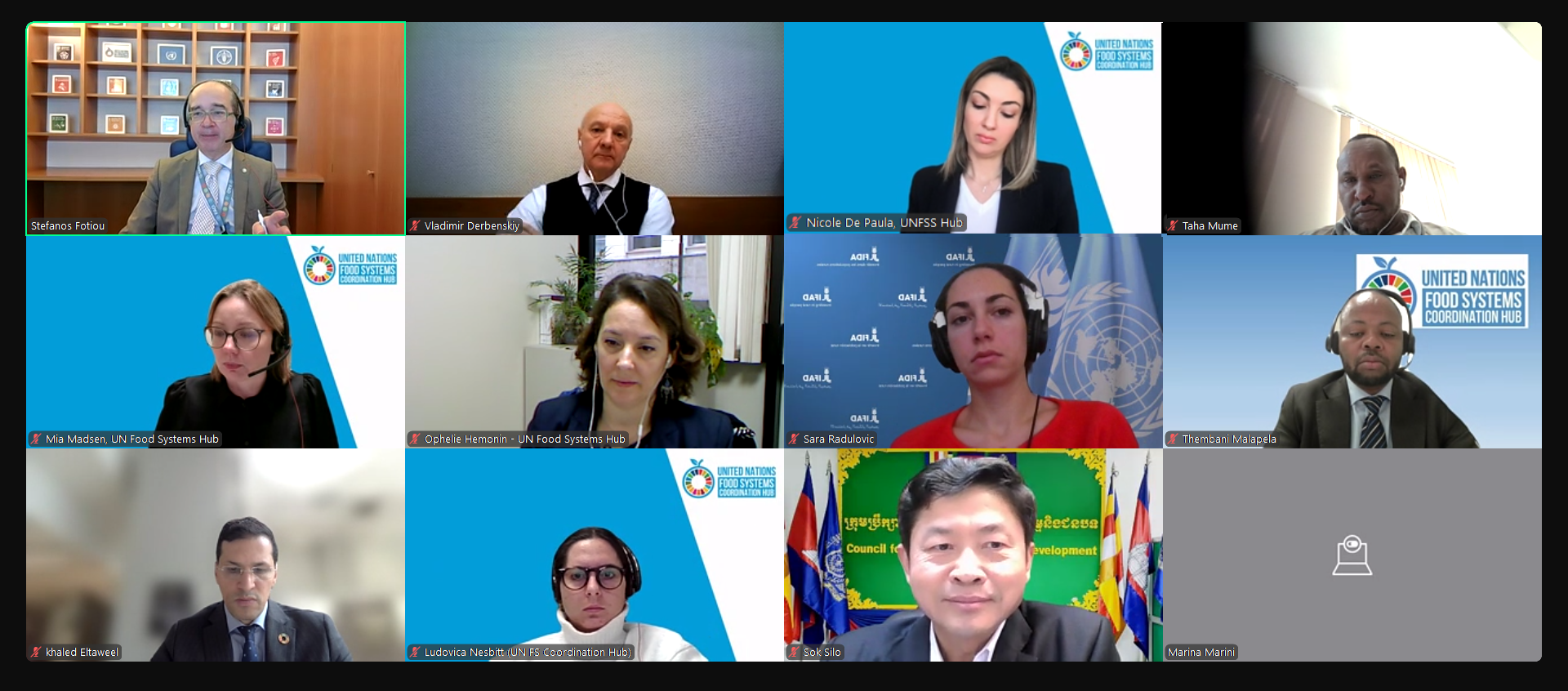SEED FUNDING JOINT PROGRAMMES
Egypt
Strengthening Sustainable and Resilient Food and Nutrition Systems in Egypt for SDG Acceleration




PROJECT TITLE | Strengthening Sustainable and Resilient Food and Nutrition Systems in Egypt for SDG Acceleration |
| Context | Egypt engaged actively in the 2021 Food Systems Summit process, convening a national dialogue and developing national pathways with recommended interventions for improving food security and nutrition by 2030. To enhance multi-sectorial coordination and spearhead the transformation process, the Government created a National Committee for Food and Nutrition Systems chaired by the Prime Minister and bringing together several ministries to coordinate joint actions. Strengthening coordination mechanisms, fostering multi-stakeholder partnerships, consolidating accountability structures, focusing on the availability of evidence, analysis, and data, are identified as key priorities to strengthen the food systems governance structure in Egypt. |
| PUNOs | WFP, FAO, UNICEF |
| Contribution to SDGs | SDG 2 Zero Hunger, SDG 3 Good Health and Well-being, 12 Responsible Consumption and Production. |
| Contribution to other SDG transitions | Climate, biodiversity, pollution |
| Duration | June 2024 – May 2025 |
| Expected financial leverage | $87,000 (PUNO co-financing) |
| Alignment with SG Call to Action | Policy integration; Food systems governance; Research, data, technology and innovation; Inclusive and participatory design; Private sector engagement |
| Outcomes | The JP contributes to strengthening policy and governance frameworks for food systems transformation and generating evidence and analysis on key dimensions of food systems to inform decision-making, supporting the work of the National Committee for Food and Nutrition Systems. The JP complements the government’s flagship program “Country Platform for the Nexus of Water, Food and Energy”, which provides a mechanism to mobilize climate finance and private investments. |
| Partners |
|
| Outputs |
|
Global Touchpoint with National Convenors

The UN Food Systems Coordination Hub convened a Global Touchpoint with National Convenors on 11 December 2024, providing a platform to review the work accomplished in 2024, share progress on Hub flagship initiatives, and set the stage for the 2nd UN Food Systems Summit Stocktaking Moment (UNFSS+4) in 2025.
Flagship initiatives in focus
The Hub provided updates on progress across its flagship initiatives:
- The Convergence Initiative: Bridging food systems transformation with climate action, this initiative addresses shared challenges like food insecurity and climate shocks. Following COP29, it will scale to 20 countries by COP30 to broaden its impact.
- Financial Flows to Food Systems (3FS): Co-developed by IFAD and the World Bank in collaboration with the Hub, the 3FS tool tracks and aligns food systems financing from public, private, and international sources. Pilots in Niger, Peru, and Kenya will inform scaling to 11 additional countries, enhancing financing insights.
- UN Joint SDG Fund - Food Systems Window: Supporting national pathways, this fund offers targeted seed and high-impact funding to advance innovative solutions. Upcoming rounds will focus on scaling proven projects, with an emphasis on climate resilience and biodiversity.
- Youth Leadership Programme (YLP): Engaging 80 young leaders from 65 countries, the programme builds a diverse cohort equipped to drive systemic change. It also works to strengthen collaboration through the Science-Policy-Society Interface (SPSI), where youth are involved in co-creating national action plans in six pilot countries.
- Operationalizing national food systems pathways: The Hub continues to support governments to integrate food systems approaches into national and subnational policies. This includes building inclusive governance structures, investment plans, and cross-sectoral partnerships, alongside upcoming tools like a tracking dashboard to monitor progress and a virtual library of practical resources for implementation.
Insights and priorities from National Convenors
Interactive discussions with National Convenors emphasized the importance of aligning efforts with global priorities while addressing national challenges. Convenors highlighted the need for regional platforms in 2025 to showcase progress, exchange solutions, and foster collaboration. Expectations for UNFSS+4 include a focus on tangible impacts, actionable outcomes, and critical themes such as financing, governance, and inclusive partnerships. Convenors also underscored the value of engaging youth, civil society, and private sector actors to build resilient, sustainable food systems.
Looking ahead to 2025
The Hub reaffirmed its commitment to supporting countries through regional forums, enhanced collaboration, and knowledge-sharing platforms. Preparations for UNFSS+4 are already underway, with a focus on showcasing national progress, fostering innovation, and maintaining global momentum.
